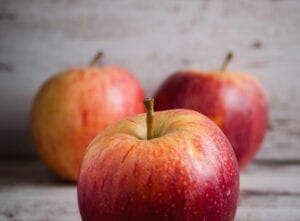Fiber: Make It an Essential Part of Your Elderly Loved One’s Diet
 Many people go about their lives just eating whatever they want. However, as someone gets older, this does have a major effect on their body. If you are helping to care for your elderly loved one, it is important to make sure they are getting many nutrients and vitamins. However, one of the most important is fiber. It is essential that you and your loved one’s elderly care providers are making sure they get enough fiber in their diet.
Many people go about their lives just eating whatever they want. However, as someone gets older, this does have a major effect on their body. If you are helping to care for your elderly loved one, it is important to make sure they are getting many nutrients and vitamins. However, one of the most important is fiber. It is essential that you and your loved one’s elderly care providers are making sure they get enough fiber in their diet.
Importance of Fiber for Elderly Adults
There are many different reasons why elderly adults need to get enough fiber in their diet. Fiber helps to maintain gastrointestinal tract functions. Without having enough fiber in the diet, the digestive processes can’t work as efficiently. Your elderly loved one’s body wouldn’t be able to properly process their food or absorb the essential nutrients or vitamins. Eating fiber-filled foods can assist with these functions.
Fiber is also important for many other reasons including the following:
- Fighting off heart disease (reducing cholesterol levels)
- Helping to prevent some kinds of cancer (particularly, colorectal cancer)
- Helping to relieve and/or prevent constipation
- Adding more minerals and vitamins to the diet
- Assisting in weight management
- Keeping the body full for longer
If you want your elderly loved one to reap all these benefits, you should make sure they are getting enough fiber in their diet.
Soluble and Insoluble Fiber
There are two types of fiber that are important for your elderly loved one’s health. These types of fiber are called soluble and insoluble fiber.
Soluble fiber will dissolve well with food that has been partially digested in your elderly loved one’s stomach. It turns into something resembling gel. The fiber will stick to toxins and bile in the stomach. The soluble fiber will then slow down digestion, so the body can properly absorb the vitamins, nutrients, and minerals from the food.
Insoluble fiber will help the body to get food passed through your elderly loved one’s digestive system. It will help to clean out the intestines and promote healthy bowel movements.
Each of these fibers is important for your elderly loved one’s digestive functions and overall digestive health. You can check with your elderly loved one’s doctor to see how much fiber they should be getting every day.
Foods That Are Filled with Fiber
If you or your loved one’s elderly care providers are doing the grocery shopping, there are certain fiber-filled foods that you can buy.
The best soluble fiber foods include the following:
- Lentils
- Oatmeal
- Oat cereals
- Apples
- Strawberries
- Pears
- Nuts
- Beans
- Flaxseed
- Dried peas
- Beans
- Celery
- Cucumbers
- Carrots
The best insoluble fiber foods include the following:
- Whole grains
- Whole wheat
- Wheat bran
- Corn bran
- Barley
- Nuts
- Seeds
- Brown rice
- Cabbage
- Zucchini
- Cucumbers
- Tomatoes
- Onions
- Leafy green vegetables
If you make sure your elderly loved one is getting the above-mentioned foods, they should get plenty of both these types of fibers in their diet.
Sources
https://www.mayoclinic.org/healthy-lifestyle/nutrition-and-healthy-eating/in-depth/high-fiber-foods/art-20050948
https://www.everydayhealth.com/digestive-health/experts-why-is-fiber-important.aspx
If you or an aging loved one is considering elderly care in Spotswood, NJ, please contact the caring staff at Care Street Home Care today. Call (732) 607-8870.
- Signs Your Senior Parent Needs Home Care Assistance - January 17, 2025
- Hearing Rehabilitation: Empowering Seniors for Better Living - January 10, 2025
- Understanding How Cartilage Changes Over the Years - January 3, 2025
